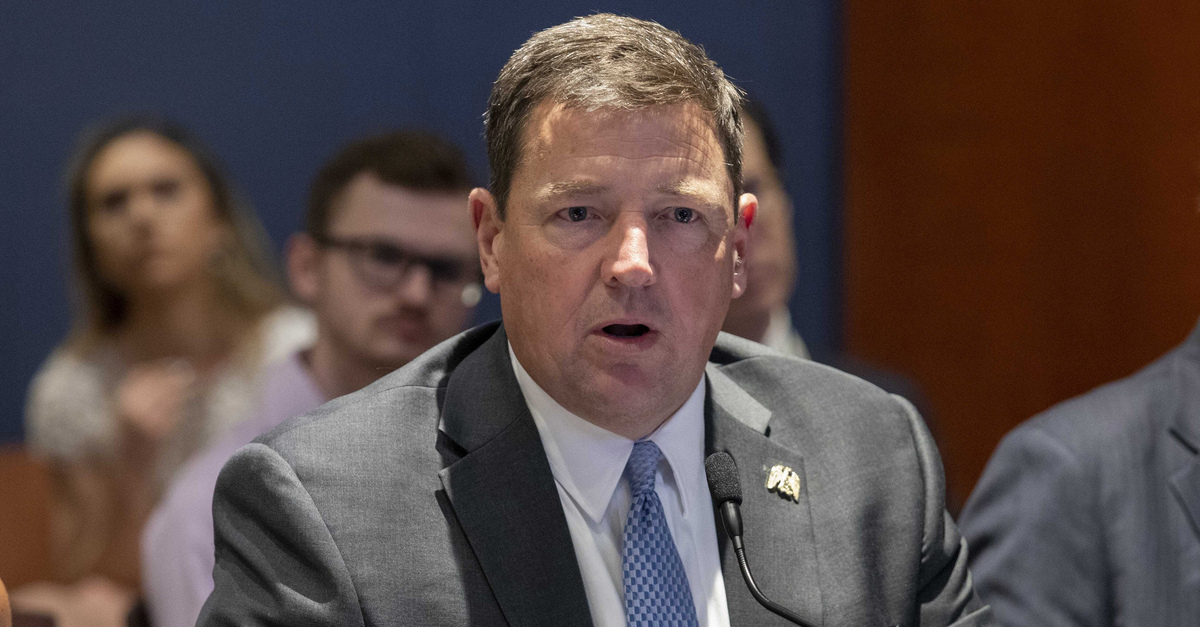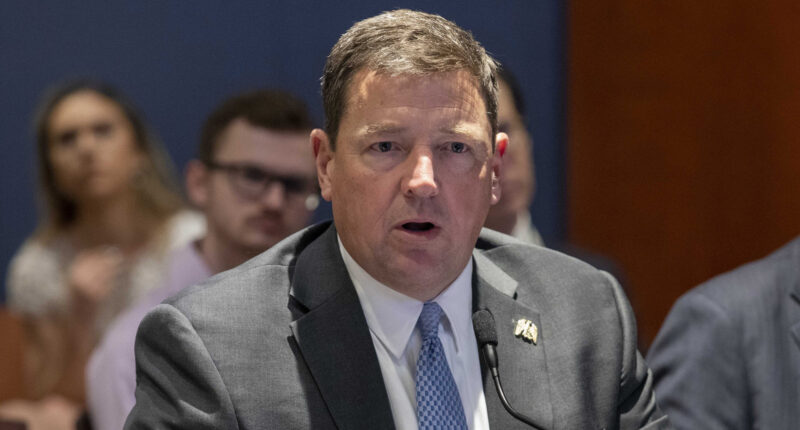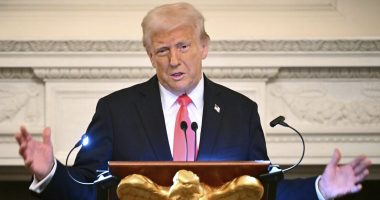Share this @internewscast.com

FILE – Ed Martin speaks at an event hosted by Rep. Matt Gaetz, R-Fla., at the Capitol in Washington, June 13, 2023 (AP Photo/Amanda Andrade-Rhoades, File).
On Friday, the lead prosecutor for the Trump administration in Washington, D.C., announced a broader investigation into the use of a particular felony obstruction charge against Jan. 6 rioters, likening their prosecution to the internment of Japanese Americans during World War II. Additionally, he is examining potential leaks said to have come from within his own office.
In a staff email seen by Law&Crime, Ed Martin, the temporary U.S. Attorney in charge of the capital, affirmed his commitment to exploring the rationale behind the frequent application of the obstruction statute 18 U.S. Code § 1512(c)(2) in cases involving Jan. 6 participants. This statute accuses individuals of obstructing, influencing, or hindering an official congressional process. Martin has named this inquiry “The 1512 Project.”
Martin, a conservative activist and 2020 election denier who previously served as the head of the Missouri Republican Party, was nominated to the permanent U.S. Attorney role by Trump in February. In January, Martin oversaw the pardoning of hundreds of Capitol rioters and fired a slew of prosecutors who had been converted from temporary to permanent status in the weeks leading up to Trump’s inauguration.
The New Jersey native previously represented Jan. 6 defendants, and has been accused of going after people who disagree with his politics, including lawmakers.
After hundreds of Jan. 6 rioters were charged under the obstruction statute, the U.S. Supreme Court last year issued a 6-3 decision that narrowed its scope, holding that it did not apply as charged to those who stormed the Capitol; instead, the statute only barred obstruction of an official proceeding by tampering with evidence. Although the majority of judges for the U.S. District Court for the District of Columbia upheld the use of the charge in Jan. 6 cases, one — a Trump appointee — did not; that decision ultimately paved the way for the case to go all the way to the Supreme Court.
Chief Justice John Roberts delivered the court’s majority opinion with Justices Clarence Thomas, Samuel Alito, Brett Kavanaugh and Ketanji Brown Jackson joining him. Justices Amy Coney Barrett, Sonia Sotomayor and Elena Kagan dissented.
As a result of the ruling, a significant number of charges against Jan. 6 defendants were dismissed, which Martin referred to the Justice Department’s “dramatic failure before the Supreme Court,” adding, “it was bad all around.”
In the office-wide email, Martin said he had contacted “lawyers, staff, and judges” for feedback on the probe, and included a portion of a supposed response he received which compared prosecuting Jan. 6, rioters to the U.S. internment of Japanese Americans descent during World War II.
“One called the bi-partisan rejection of the 1512 charge the ‘greatest failure of legal judgement since FDR and his Attorney General put American citizens of Japanese descent in prison camps — and seized their property,’” Martin’s email states. “I agree and that’s why we continue to look at who ordered the 1512 and why. A lot to do.”
Notably, the first charges under the statute brought against Jan. 6 rioters were filed Jan. 19, 2021, when Trump was still in office, Politico reported.
Martin last month demoted several of the office’s senior leaders to handling low-level misdemeanors, reportedly as retribution for their work on prosecuting cases involving the president’s allies and Capitol rioters.
Last week, more than 100 former federal prosecutors signed onto a letter calling Martin an “egregiously unqualified political hack who has never served either as a prosecutor or judge,” imploring the Senate to reject his nomination.
Love true crime? Sign up for our newsletter, The Law&Crime Docket, to get the latest real-life crime stories delivered right to your inbox.

















